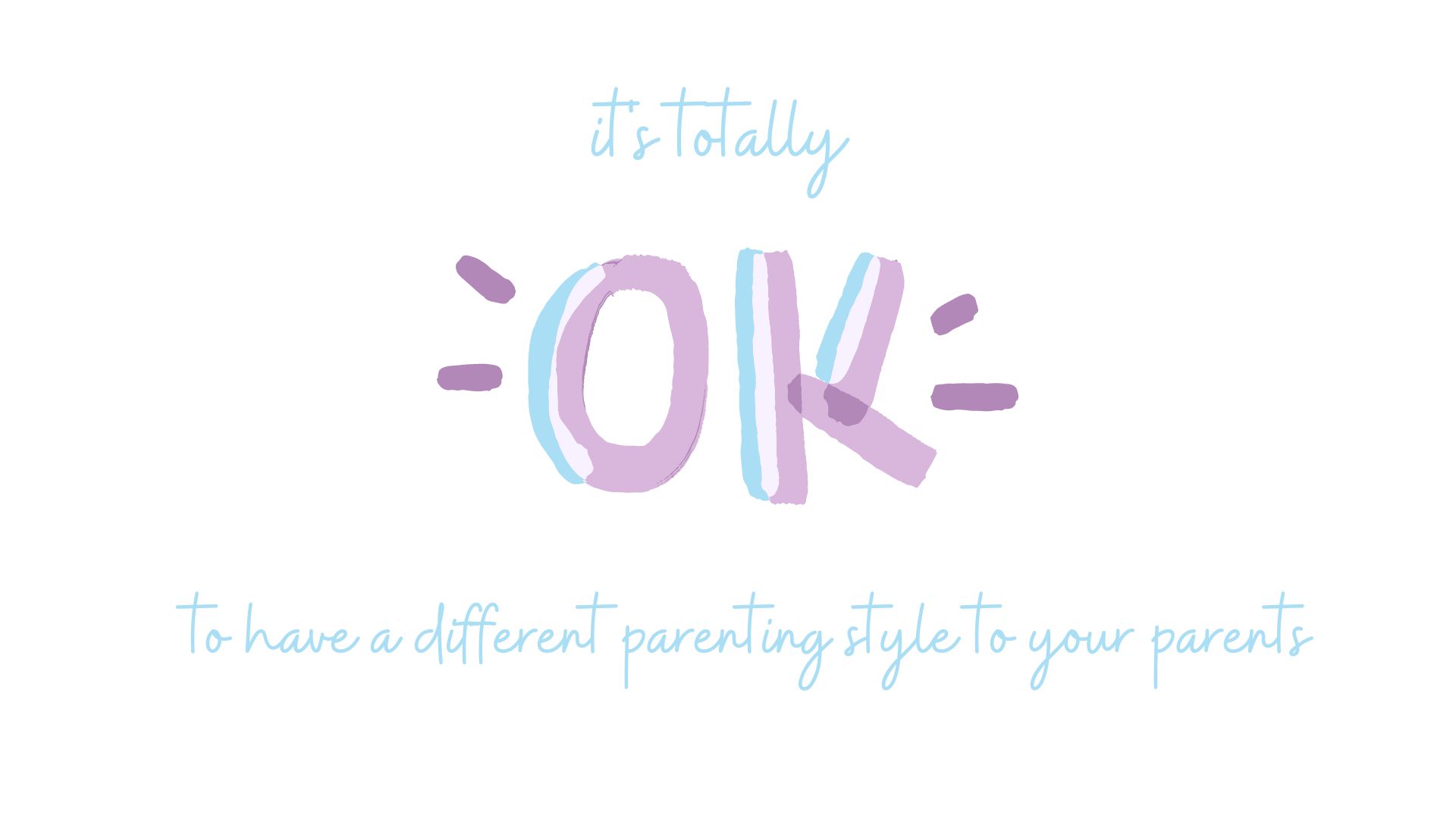When family disagree with your parenting style here's what to do - by the experts
Find out the best tips for when family disagree with your parenting style


When family disagree with your parenting style it's hard to know what to do, it can be a fine - and tricky - line to tread. Which is why we called in the experts to help...
If it's not worrying about the average cost of childcare, wondering when the kids go back to school or how to actually embrace being a mother then it's the juggle of your own parents and family members who have different ideas, values and expectations about how you should raise your children. Parenting is not easy.
Parenting psychotherapist, mother-of-three, and author Anna Mathur says that today’s generation of parents feel more judged than ever before. “We have an increased awareness of childhood psychology and the impact that parenting can have on a person. We’re trying to learn to do it differently,” she notes.
Anna, who also runs The Therapy Edit podcast, says there has been a significant rise in the ‘gentle parenting’ approach and that we favour connection over correction. We don’t, in other words, take the ‘do as I say not as I do’ line that our parents may have followed. And herein can lie the battle...
What to do when family disagree with your parenting style
The main thing to remember is you know your family better than anyone else, you are the expert in them, and - especially when you have younger ones - you are their voice, their advocate in this world. And sometimes that looks like saying 'no thank you' to kisses goodbye.
“We’re trailblazers for this new model of parenting,” Anna says. We are not only helping our children learn how to validate their emotions, we are also trying to validate our own. “But that means today’s parents can feel judged for being gentler with our children. It can be hard to know how to respond to the criticism, especially if we’re natural people pleasers. We’re still finding our own way so we can feel really vulnerable to any sort of criticism from family members.”
One of the most common generational conflicts among parents was with the children’s grandparents. Almost one in four (37%) of US parents reported having minor disagreements with a grandparent, a 2020 study by The C.S. Mott Children’s Hospital in Michigan, showed.
GoodtoKnow Newsletter
Parenting advice, hot topics, best buys and family finance tips delivered straight to your inbox.
Some of the most common areas of dispute were over;
- Discipline
- Meal times
- Snacks
- Screen time
- Manners
- Health & Safety
- Bedtime
- Sharing photos on social media
1. Know your why and learn to be okay with being misunderstood
Anna says it’s really important to know and understand your ‘why,’ when it comes to parenting. “The more confidence we can have in our parenting choices, the better.” In other words, you need to work out your values and what is important to you.
What to do: When it comes to unsolicited advice, it’s about looking at what is being said subjectively and asking yourself if it resonates with you or your beliefs. “If it doesn’t, chuck it,” Anna says. "It's about learning to be okay with being misunderstood by others.” Essentially we can't change what other people think about us or what we do.
"Parenthood...It's about guiding the next generation, and forgiving the last."
Peter Krause, actor
2. Dealing with an overbearing family member
As parents, we’ve probably all been on the receiving end of unsolicited advice at one point or another. Whether it’s sharp criticism for not wrapping baby up warm enough or ignoring you when you say no to sweets, especially if you tend to meet at 'special occasions'. It can be difficult to navigate an overbearing family member.
What to do: Chartered psychologist and mother-of-five, Catherine Hallissey, says it is best to try and presume they have good intentions. “This will make it easier to stay calm in the moment. Then set a firm boundary,” she says. “I find it works well to say something along the lines of: ‘Thanks for the tip - the guidelines for parents change all the time so I’m going to keep it simple and just do what my GP (or other expert) advises.’”
3. What if a grandparent is making your child feel uncomfortable?
“Let's take a look at the issue of consent,” says Yasmin Shaheen-Zaffar, a parenting coach. “For example, as a child I was sent around each family member to give each member a kiss before we left. I didn't get a choice in that. But nowadays - that doesn’t happen. We talk more about what the child is comfortable with. That’s due to a shift in values and information.”
What to do: Be clear with your family about what is and isn’t okay this clarification is essential, Yasmin tells us. Also let your child know it is okay for them to say no thank you' to anything they're not happy with, you support them.
4. What if your partner doesn't get it?
It might be that your partner doesn’t know what to say or do to support you in the face of criticism from your mother or father in law, they were brought up by them after all.
What to do: “It’s essential to have a debrief and download after any form of conflict and be clear with your partner about your expectations,” Anna says. "Not discussing such things can be toxic and damage a relationship so it’s about learning how to have such difficult conversations."

5. What if you have a child with special needs?
If you have a child with additional needs, the generational conflicts can become even more complex as older generations can have different attitudes. “You are your child’s best advocate and strongest cheerleader,” says Catherine. “You need to guide your family on how best to support your child and be specific about what does and does not work for them,” she advises.
What to do: “Try to be patient and never be afraid to step in to support your child by setting a boundary, e.g. “they will say ‘hi’ when they’re ready” or they need time and space to regulate,” says Catherine.
6. Different parenting styles are okay
Ultimately, it is worth remembering that it’s perfectly normal to have a different parenting style to your own parents and that each generation wants to do better, or differently, to the last.
“The most obvious reason is there will be a shift and a generational difference in values, responsibilities, technology, information and culture. Especially if your parents or grandparents are immigrants. Britain now is so multi-cultural and diverse,” Shaheen-Zaffar says.
“Also generally most parents want to do better and be better than their own parents. I see this as a kind of “generational evolution” where each generation develops their own values & rules.”
What to do: Communicate your concerns with calmness and clarity, this can help avoid potential blow ups and conflicts along the way. And remember that, usually, everyone just wants the best for your child, it's just sometimes 'the best' looks different to different people.
Related features:
Video of the Week:

Georgina Fuller is a freelance journalist, editor and media consultant. She has written for everyone from Take A Break to Tatler, but specializes in writing about family, women and lifestyle. She writes regularly for The Daily Telegraph, The Guardian and Grazia and has a monthly column in her local paper, The Stratford Herald.